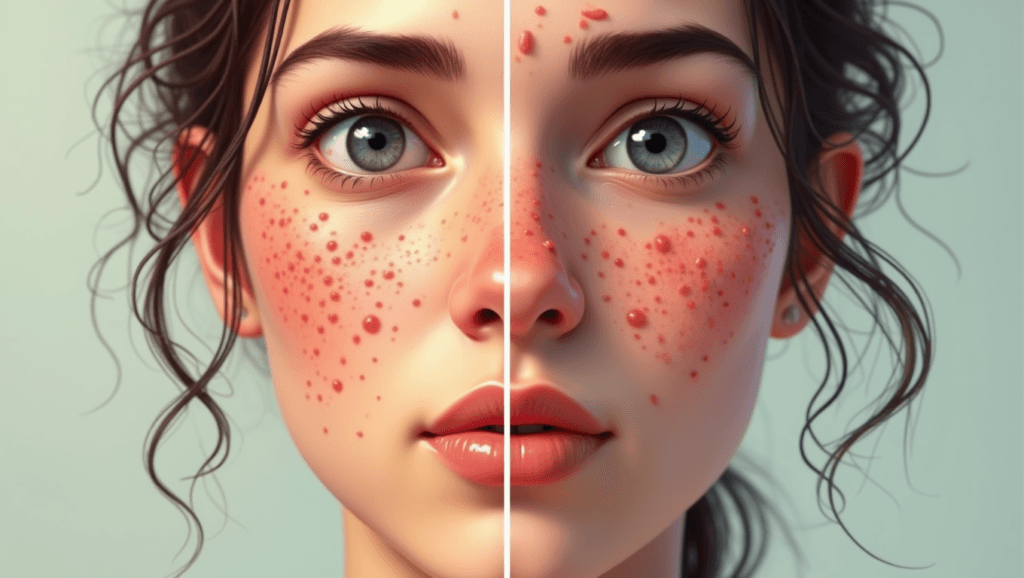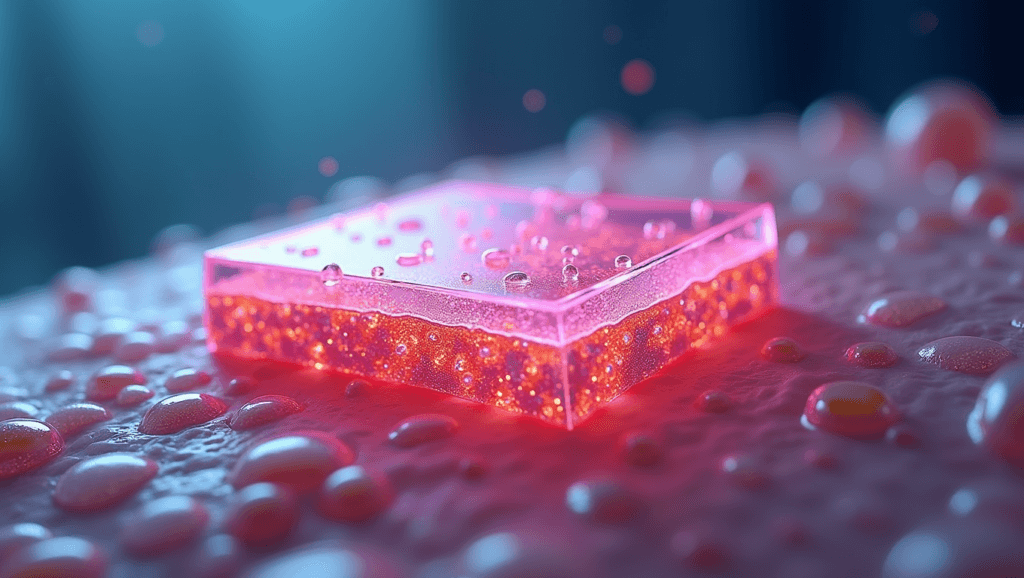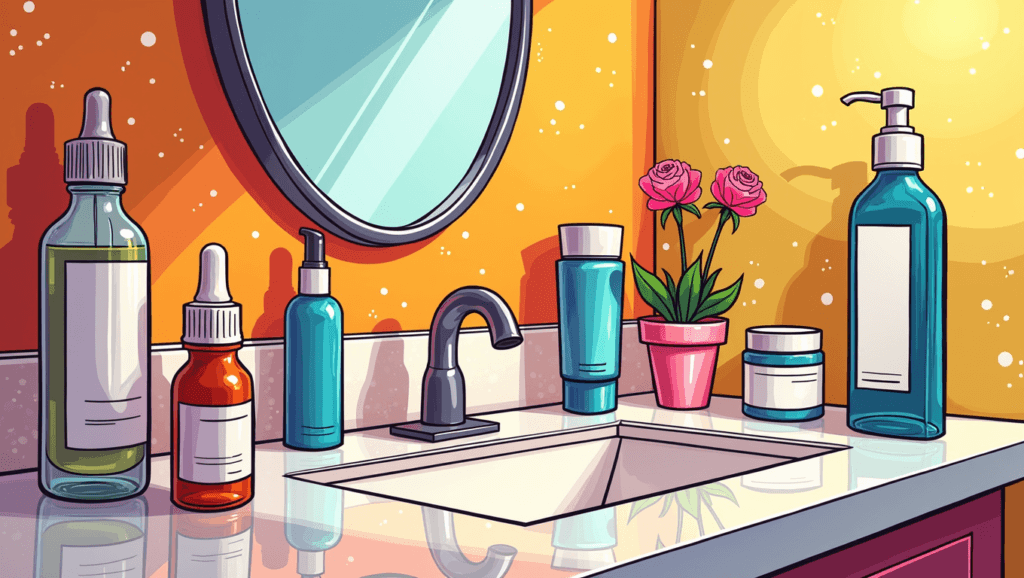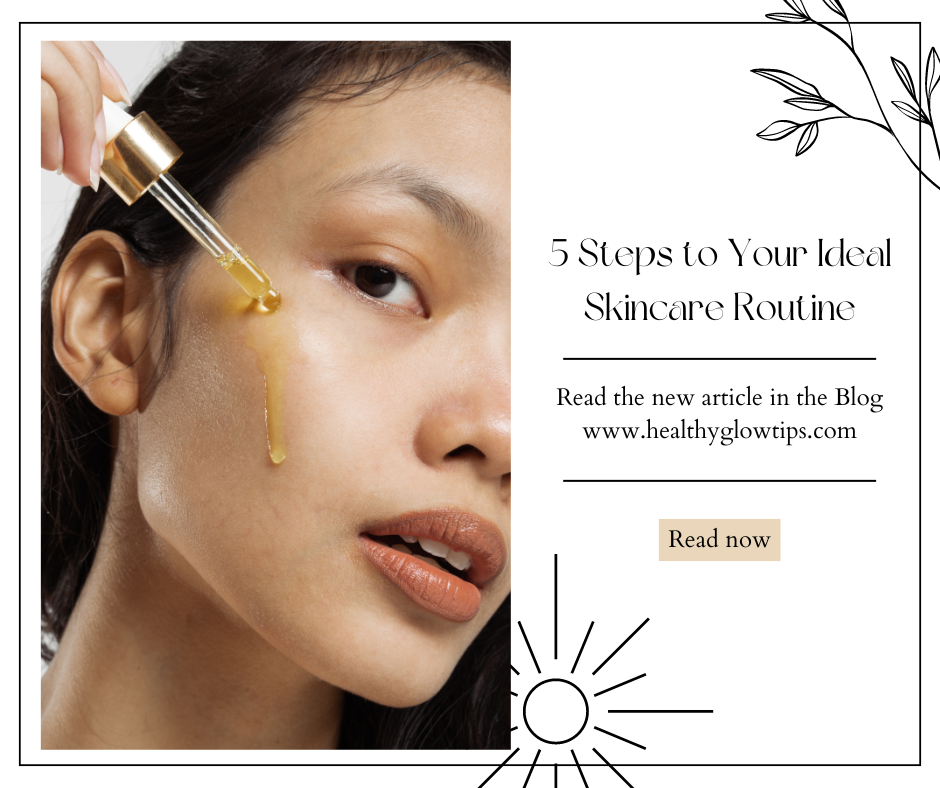Have you ever considered pimple patches for your cystic acne?
I was skeptical at first, too.
But the journey to understanding their impact was eye-opening.
Today, I’ll unveil whether these tiny patches really fight deep, painful pimples.
Expect to explore their benefits, limitations, and best practices.
Ready to find out if they belong in your skincare routine?

Do Pimple Patches Work on Cystic Acne Over Night?
Introduction
Acne is a common skin problem that affects many people around the world. Though many people have periodic breakouts, others have more serious types of acne, such as cystic acne. Pimple patches have become more popular in recent years as a fast and simple treatment for the different types of acne you may face. We address the effectiveness of pimple patches on cystic acne, especially overnight results, in this blog post.
Summary of cystic acne vs regular acne
Common acne usually appears on the surface of the skin as whiteheads, blackheads, or tiny pimples. Cystic acne, however, is a more serious type which lies deeper in the skin. It can cause painful, inflamed bumps that may be larger and longer-lasting than regular acne.
What you need to know about pimple patches
Pimple patches are small, adhesive stickers meant to be applied directly to acne lesions. They say they help tone the skin by reducing inflammation, sucking up excess oil, and promoting healing. Although these patches may be promising when it comes to battling surface-level acne, applying them to cystic goat is contentious at best.
Understanding Cystic Acne
What is cystic acne?
Cystic acne: A severe type of acne causes large, painful cysts deep under the skin. These cysts are pus-filled and can be painful to the touch. Cystic acne typically takes longer to heal than surface acne and may also result in scars.
Causes of cystic acne
There are myriad factors that can cause cystic acne:
- Hormonal changes
- Genetics
- Excessive oil production
- Bacterial growth
- Inflammation
Les traitements habituels de l’acné kystique
Conventional treatments for cystic acne typically involve:
- Oral antibiotics
- Topical retinoids
- Isotretinoin (for severe cases)
- Hormone treatments (for women)
- Chemical peels or laser treatment
What are Pimple Patches?

What is a pimple patch made of?
Pimple patches are usually composed of hydrocolloid, a gel-like substance that encourages a moist healing environment. Some patches even venture beyond the basic formula by infusing actives like salicylic acid, tea tree oil, or niacinamide to address specific skin concerns.
How do pimple patches work?
Pimple patches work by:
- All you are essentially doing is building a protective wall over the infected area
- Excess oil and fluids absorption
- Reducing inflammation
- Halting additional by-product bacterial re-contamination
Pimple patches in a variety of styles
Different kinds of pimple patches exist on the market:
- Hydrocolloid patches
- Microneedle patches
- Medicated patches
- Invisible patches
How well do pimples patches work?
How are patches responding to common acne?
For surface-level acne, pimple patches work really well. They also help to draw out pus and oil, reduce redness and protect the area from further irritation. For smaller zits many users say it made a visible difference by the morning.
What this means for cystic acne
Pimple patches’ efficacy on cystic acne isn’t so cut-and-dried. As for cystic acne, patches will likely have minimal penetration to address the source deep underneath this kind of acne. They might help calm surface inflammation but won’t cure cystic acne overnight.
The Pros And Cons Of Pimple Patches
Why Should You Use Pimple Patches?
- Non-invasive treatment
- Prevents the impacted area from random fingering and nailpicking
- May help lessen visible inflammation
- Easy to use and discreet
Limitations and considerations
- Not suitable for deep cystic acne
- Expensive if used often
- May cause skin irritation on some users
- Not a permanent acne fix
Cystic Acne Alternative Treatments

Medicines (short summary)
- Prescription-only oral drugs
- Topicals (retinoids, antibiotics)
- Corticosteroid injections
*Also chemical peels or laser therapy
Home treatments and lifestyle modifications
- Keeping a regular skincare regimen
* Non-comedogenic products - Managing stress levels
- Adopting a balanced diet
- Staying hydrated
You Can’t Change Old Habits — Research and User Experiences
Summary of user reviews
Cystic acne suffers report widely varying experiences when using pimple patches. Some report slight improvement in inflammation and healing time, while others see little or no benefit for deep, cystic lesions.
What studies say on patches
There is little scientific research available on the effectiveness of pimple patches for cystic acne. Many of the studies had looked at their use for superficial acne, for which they appear to have yielded more effective results.
Conclusion
Final tips for using pimple patches for cystic acne
Pimple patches are helpful for treating surface-level acne, but they are not very effective for cystic acne or for use overnight. They might offer some relief by decreasing surface inflammation and shielding the area, but they probably won’t clear deep, cystic lesions in the short term.
Advice for sufferers of cystic acne
Those who are experiencing cystic acne should see a dermatologist for an effective treatment plan. Pimple patches may provide some relief as an adjunctive therapy, however they should not be relied upon as the only solution for more severe acne problems.
FAQs
Do pimple patches work on cystic acne?
Keep in mind that pimple patches aren’t a solution for cystic acne. These are likely to help manage symptoms but not the underlying cause of deep, cystic lesions.
How many times a day can you use pimple patches?
For surface-level acne, add patches as needed. With cystic acne, though, it’s better to get a dermatologist’s advice on how often to use it.
Are pimple patches safe to use?
However, some people might develop skin irritation or allergic responses. New products should always be patch-tested, and use should be discontinued if there is any adverse reaction.


